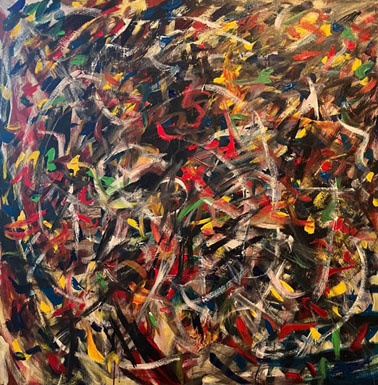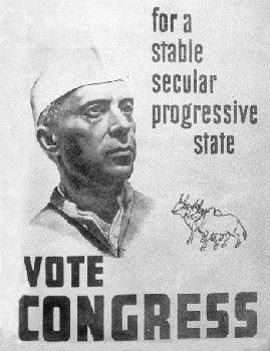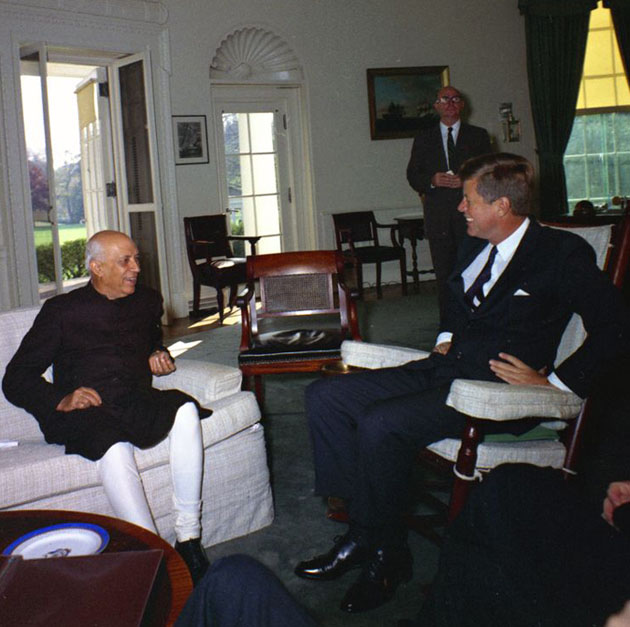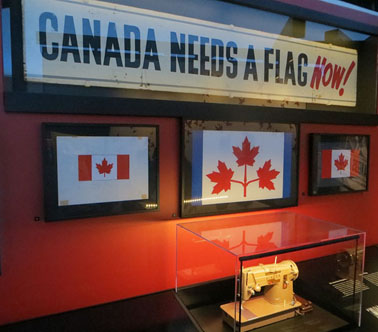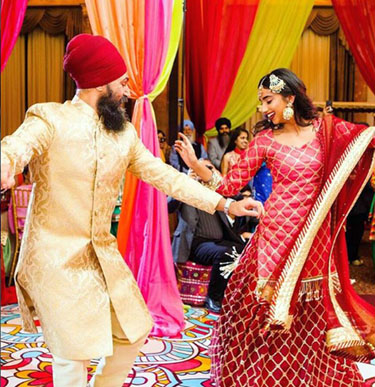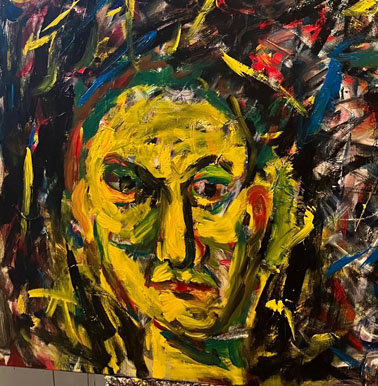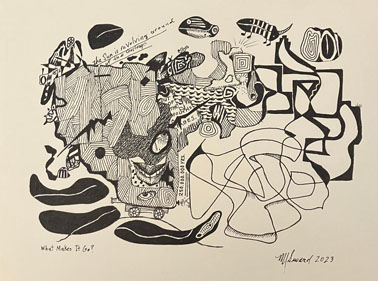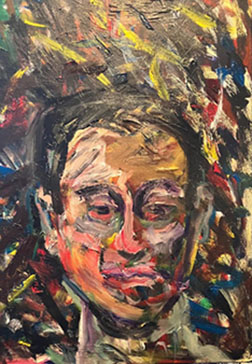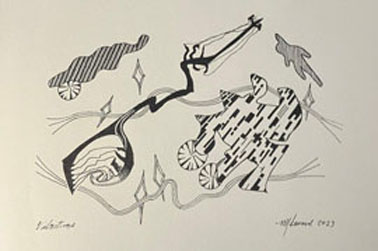If Justin Trudeau’s party took old Liberal approach to Canadian sovereignty, urging goodbye to British monarchy, it might do better in polls (& India too?)!
Sep 15th, 2023 | By Randall White | Category: In BriefUPDATE SEPTEMBER 19, 2023. 2:30 AM ET. RANDALL WHITE, TORONTO. Yesterday Canadian PM Justin Trudeau provided some deep background on his most recent disagreements with PM Narendra Modi in India. (Note my original post here for September 15, far below!)
See, eg, John Paul Tasker at CBC on “Trudeau accuses India’s government of involvement in killing of Canadian Sikh leader … Hardeep Singh Nijjar was killed in BC in June” , and Tom Yun at CTV on “Trudeau accuses India of role in killing of Canadian Sikh leader.”
India has rejected Justin Trudeau’s claims (although the fine print is not quite as strong as “claims” — more like “credible allegations of a potential link”) . As explained by Mr. Tasker : “India’s ministry of external affairs issued a statement Monday night rejecting Trudeau’s allegations, calling them ‘absurd … Such unsubstantiated allegations seek to shift the focus from Khalistani terrorists and extremists, who have been provided shelter in Canada and continue to threaten India’s sovereignty and territorial integrity … The inaction of the Canadian Government on this matter has been a long-standing and continuing concern.’”
Cheryl Chan at the Vancouver Sun has also provided some useful background on murdered Surrey Sikh leader Hardeep Singh Nijjar : “Nijjar, 45, was president of the [Sikh] temple [in Surrey where he was murdered] and an outspoken supporter of Khalistan, an independent Sikh nation supporters want to see carved out of the Indian state of Punjab.”
According to his lawyer, “Nijjar had been warned by the Canadian Security Intelligence Service of threats against him because of his political activism … India had accused Nijjar of terrorism-related activities in the past … In 2016, New Delhi alleged Nijjar was linked to a 2007 bombing at a Punjab cinema that killed six. Last year, India’s counterterrorism National Investigation Agency announced a $16,000 reward for information leading to his arrest in relation to a conspiracy to murder a Hindu priest … Nijjar had said the allegations were false. ‘I am living here [in Canada] since 1997. I did not go back to India … I’m working hard as a plumber and at the temple’ … He even wrote to Prime Minister Justin Trudeau, urging him to ‘dispel the Indian government’s fabricated, baseless, fictitious and politically motivated allegations against me.’”
As explained by PM Trudeau, “Canadian security agencies have been actively pursuing credible allegations of a potential link between agents of the Government of India and the killing of a Canadian citizen, Hardeep Singh Nijjar.”
According to Public Safety Minister Dominic LeBlanc, the RCMP is now leading the Nijjar murder investigation. As explained again by Mr. Tasker at the CBC : “Trudeau also urged the Indian government to participate in the ongoing investigation and ‘co-operate with Canada to get to the bottom of this matter.’”
If there is little chance that Narendra Modi’s India will in fact co-operate here, both Canadian Conservative leader Pierre Poilievre and New Democrat leader Jagmeet Singh have expressed support for the government and people of Canada.
According to Mr. Poilievre “it’s ‘outrageous’ that India may be behind Nijjar’s killing … ‘Our citizens must be safe from extrajudicial killings. Canadians deserve to be protected on Canadian soil. We call on the Indian government to act with utmost transparency as authorities investigate this murder. The truth must come out’.”
In his speech “NDP Leader Jagmeet Singh blasted the Indian government under Modi, a Hindu … Singh said the Modi-led government has been ‘one of division, violence, persecution … attacking those who are critical’ of its actions.”
With this as background, here are two (well maybe three) very quick notes on how these latest developments relate to the broader arguments I have advanced below.
First, if the investigation being led by the RCMP finally shows that agents of the Government of India were not in any way involved in the killing of a Canadian citizen, Hardeep Singh Nijjar, this will not help the current Trudeau Liberals’ increasingly troubling low standing in Canadian opinion pols and beyond. On the other hand … (The one time Pierre Poilievre does the right thing could ironically work out badly for him politically! LATER NOTE : On the other hand again, he soon reverted to his customary attack-Trudeau-mindlessly mode on September 19!)
Second, the lack of courage, patriotism, political will, and even serious support for a sovereign Canadian future reflected in the current and immediately previous federal government’s unwillingness to politely wave goodbye to the old colonial British monarch as symbolic Canadian head of state, has something to do with the governments of other countries’ unwillingness to take Canadian sovereignty seriously.
And this just may extend to some kind of involvement in “extrajudicial killings … on Canadian soil.” If we Canadians don’t care about our sovereignty enough to renounce the ultimate lingering of our colonial past (and what the late, great René Lévesque called “the colonized mind”), why should anyone else?
Finally, increased tension between the governments of Canada and India can only hurt my ultimate argument below about how waving goodbye to the British monarchy in Canada (as some two-thirds of Canadians apparently do want already) can most easily be achieved by following the parliamentary democratic republican trail blazed in India by Nehru and Gandhi, after the Second World War.
I am hoping as well, however (albeit against all odds?), that the Rahul Gandhi Congress Party and other successors of the cosmopolitan but ancient, world’s-largest-democratic India launched by Prime Minister Jawaharlal Nehru, 1947–1964 (“VOTE CONGRESS for a stable secular progressive state”), can at least make very serious inroads on Mr. Modi’s BJP in India’s spring 2024 national elections!! (And here’s also hoping that the Congress Party is getting money from the legendary George Soros!)
* * * *
RANDALL WHITE. FERNWOOD PARK, TORONTO. FRIDAY, SEPTEMBER 15, 2023. As if Justin Trudeau didn’t have enough troubles, he has just had to deal with such global and local headlines as, eg :
(1) “Justin Trudeau: Stranded Canadian PM leaves India after plane snag fixed” ;
(2) “Trudeau finally leaves India, but will land in Canada amid domestic backlash” ;
(3) “Justin Trudeau’s painful India trip: Earful from Modi govt, criticism back in Canada” ;
(4) “Delayed by plane troubles, Trudeau finally heading home from India” ;
(5) “Modi scolds Trudeau over Sikh protests in Canada against India.”
Some are bound to remember the somewhat parallel disaster of PM Trudeau’s first trip to India in 2018. (And for local reaction of the day here see “Canadians disapprove of Trudeau’s trip to India, poll suggests,” published in the Globe and Mail, March 20, 2018.)
Others will underline the point that while PM Justin Trudeau did not win a majority government in either the 2019 or 2021 Canadian federal elections, he did remain Prime Minister of Canada. So a second disastrous trip to India in the late summer of 2023 does not necessarily mean that he will exactly lose an election in the fall of 2025.
Sikhs and Indians in Canada and India (and Trudeau Liberals still in more trouble in Canada now than ever before!)
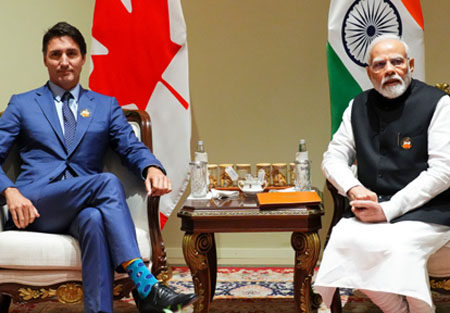
Meanwhile, no one quite talks this way in the real world at the moment. But there is as well the quiet point that Narendra Modi’s right-wing nationalist India — not altogether unlike Donald Trump’s right-wing nationalist USA — increasingly likes to throw its weight around. And, for all Justin Trudeau’s missteps in early 2018, in the real global village 2023 any prime minister of Canada is an easy target for such things as “Modi scolds Trudeau over Sikh protests.”
Then there are such Indian headlines after the 2019 Canadian federal election as “Canada: 18 Sikh leaders elected to Parliament, five more than India.” One of these 18 was New Democrat leader Jagmeet Singh, who in 2022 would sign a Supply and Confidence Agreement to keep the minority governing Trudeau Liberals in office until 2025. And : “In 2013, Singh was denied a visa to India for raising the issue of the 1984 anti-Sikh riots. He became the first Western legislator ever to be denied entry to India.”
Then again there is PM Trudeau’s August 15, 2023 “Statement by the Prime Minister on India’s Independence Day.” Here he noted that “Canada is home to one of the largest Indian diasporas in the world, with nearly 1.3 million people of Indian descent living in our communities from coast to coast to coast. These communities are an integral part of Canada’s national identity …”
Whatever else, for the most part current opinion polls are still leaving no doubt that Justin Trudeau and his Liberal Party of Canada are in more trouble in the fall of 2023 than they have been since they were first elected as a majority government in the fall of 2015. They do need something completely different to buoy them up. And beyond trying to make rigorously practical progress on, eg, the genuinely troubling high cost of groceries and housing, I think there could be yet another more philosophical prospect.
A long Liberal tradition of moving away from the old British monarchy and towards the new Canadian democracy
An Abacus poll taken early this past May 2023 suggested that “2 in 3 Canadians would vote to eliminate the monarchy in Canada.” Quite recently a Leger poll taken this September 2023 is showing that “63% of Canadians believe it’s time to reconsider Canada’s ties to the monarchy now that Charles III is king.” And : “Only 14% of Canadians feel attached to the monarchy.”
It is true enough that Justin Trudeau has up to this point said things which suggest he is not at all interested in pursuing the end of the British monarchy in Canada as a practical issue. (And it is worth remembering that he first met the late Queen Elizabeth II when he was five years old.)
Politics in a real democracy, however, is not finally about private emotions. And there is a long Liberal tradition of moving away from the old British monarchy and towards the new Canadian democracy. After the Second World War in which “42,042 men and women of Canada’s armed forces died” it was a Liberal Government of Canada that, eg :
(1) introduced the first Canadian Citizenship Act in 1947 (before which Canadians were legally just “British subjects” in Canada) ;
(2) appointed the first Canadian Governor General of Canada, in 1952 (before which holders of the office were British aristicrats) ;
(3) led the Canadian House of Commons’ creation of an independent Canadian flag in 1965 ;
(4) changed the name of the Dominion Bureau of Statistics to Statistics Canada in 1971 (quietly walking away from the old colonial term “Dominion of Canada”) ; and
(5) led the federal-provincial process that finally “patriated” Canada’s 1867 constitution from the United Kingdom with the Constitution Act, 1982 (which begins with the Canadian Charter of Rights and Freedoms).
Changing Monarchy in Canada under Constitution Act, 1982
The Constitution Act, 1982 is also of course a great legacy of Justin Trudeau’s father, Pierre Trudeau. And there are those who delight in pointing out that under section 41 (a) of this legacy any constitutional amendment involving “the office of the Queen [now King], the Governor General and the Lieutenant Governor of a province” must be “authorized by resolutions of the Senate and House of Commons and of the legislative assembly of each province.”
Thus, some urge, the required but highly unlikely agreement of the federal parliament and all 10 provincial legislatures makes it practically impossible to change the clear role of the British monarchy (as it was 156 years ago under Queen Victoria) in what we now in Canada call the Constitution Act, 1867 (formerly the British North America Act, 1867).
This, it has been wisely said, amounts to a counsel of weakness at best. At worst it is just the monarchist minority (albeit still well represented in Canadian elites) pretending that its increasingly less popular option is still protected by some divine right of intransigent provincial legislatures. (Which Canadian provinces are just too foolish and unpatriotic to ever rise above!)
And yet the recent Leger and Abacus polls point to a growing popular sentiment against the British monarchy in Canada. In some serious historical Canadian world this would or ought to belong in some measure to the historic Liberal Party of Canada — again. And getting back to India in conclusion here, the cosmopolitan experience of Nehru and Gandhi in the 1940s, if not quite the narrow Hindu nationalist experience of Narendra Modi in the 2020s, helps clarify that it is not really all that complicated for a former British dominion (and constitutional monarchy) to become an independent democratic republic within today’s Commonwealth of Nations.
Adapting the Indian model to Canada in Justin Trudeau’s last term????

The Indian model of the Canadian future in this respect, it could be said, also gives fresh advantages to all 10 Canadian provinces, who have to agree to the deed under section 41 of the Constitution Act, 1982.
What the British dominion of India (1947–1950) did to become a simpler democratic republic without any constitutional allegiance to the British monarch was turn the Governor General of India into an independent head of state who replaced (and played the practical role of) the monarch, in what otherwise remained a UK-style (or “Westminster”) parliamentary democracy.
This new Indian Governor General as head of state (renamed a President, as may not be advisable in Canada) was selected not by the old dominion prime minister (as the Governor General of Canada still is today) but by a more democratic electoral college of both federal and state (or provincial in Canada) legislatures or parliaments.
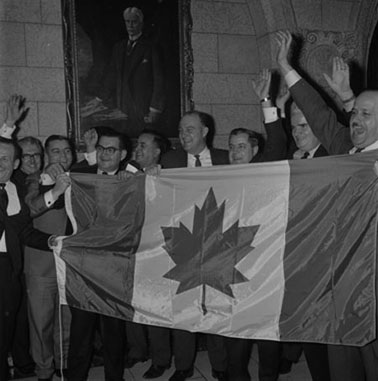
What all 10 Canadian provinces would gain by voting for this model is a role in choosing the Governor General (who already plays the practical role of the monarch in Canada, under George VI’s Letters Patent of 1947). And this finally ought to be enough to persuade all 10 provinces to vote for a constitutional amendment that will at last politely wave goodbye to the British monarchy in 21st century Canada.
So, more exactly and quickly, on this scenario in the 2025 campaign (which may actually be starting now, in the fall of 2023?) the Justin Trudeau Liberals would promise to hold a federal-provincial First Ministers Conference and subsequent referendum/s on a practical proposal for democratizing the office of Governor General of Canada, involving both federal and provincial legislatures, during PM Trudeau’s last fixed-date term in office, 2025–2029 …
There is of course much more that could be said about this kind of proposal … But I have already said more than enough for now!
